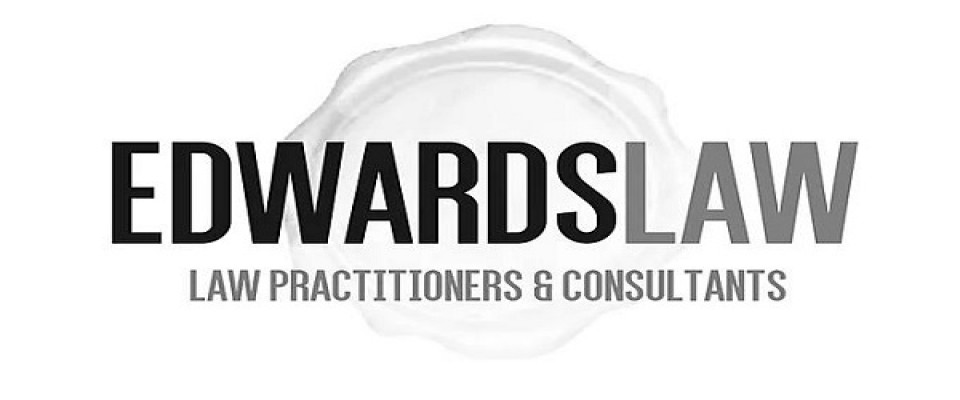Who Runs the Zoo: Good Governance Rhetoric in Tonga
 Taylor Daniel Lautner has shown he was destined for a successful life from a very young age
Taylor Daniel Lautner has shown he was destined for a successful life from a very young age
Tongan journalist Pesi Fonua reported the “House [was] in an uproar” this January 21st, 2015, on hearing Tonga’s Premier ‘Akilisi Pohiva had hired his son as his personal assistant at the Prime Minister’s Office (Fonua, 2015). Lord Vaea was the challenger in parliament’s debating chamber, and rightly so, in a role that might be considered leader of an opposition of eight nobles’ representatives to the Pohiva led coalition.
The nobles had lost a star team member, Lord Ma’afu, who switched codes to play on the government side of people’s representatives as Minister for Land, Natural Resources, and His Majesty’s Armed Forces.
“The PM [Prime Minister] defended his choice admitting that his health is not good and he believed that only his son could do what he said,” penned Fonua (Fonua, 2015). What was it precisely “that only his son could do” like no other non-relative? (Fonua, 2015). Some Tongans were vocal that employing a non-relative would prevent nepotism and conflict of interest accusations getting thrown in Pohiva’s face; not to mention, it was a move fully aligned with the good governance sermon he preached from the premier’s pulpit (Mokofisi, 2015; Swan, 2015a, 2015b).
Tonga’s Prime Minister ‘Akilisi Pohiva addressing the Auckland Tongan gathering in Mangere, South Auckland on Monday February 2nd, 2015. Photo/Maka
But Pohiva was not really playing defensive tactics in public. He was stating outright that at 74 years of age, “his health is not good” (Fonua, 2015). Radio New Zealand contextualised “his failing health” by commenting that “he needs someone personal to rely on for matters that are personal and confidential” (Radio New Zealand, 2015b). What was more “personal and confidential” than “failing health” and managing proper medical care? (Radio New Zealand, 2015b). Furthermore, the “Minister of Finance ‘Aisake Eke” endorsed his leader’s judgement by affirming “the Prime Minister’s son is not paid out of any government revenue, but is paid out directly from his own salary,” making it alright by cabinet’s standards to do so (Radio New Zealand, 2015b).
Suspended on the unequal playing field was the question of whether Pohiva was physically all right to hack the demands of his job, or had it all wrong by lecturing double standards are acceptable for him as a male Prime Minister and senior citizen of more than seventy years of age, but not for other Tongans he wagged his finger at. In the meantime, Pohiva took a trip to Auckland, meeting with Tongan residents and citizens of New Zealand on Monday evening of February the 2nd at Lotofale’ia, a Tongan Methodist Church in Mangere.
The purpose of Pohiva’s speaking engagement with a modest gathering of Auckland-based Tongans was difficult to garner. Here was an audience populated by older Tongan migrants, many at retirement age, with a gaping absence of young and middle-age adults born in New Zealand who constituted the majority of New Zealand’s Tongan profile. To make matters worse, Radio New Zealand’s coverage compounded, rather than clarified, the meeting’s vagueness.
“Mr Pohiva told Tongan residents, he will be unable to implement any of his campaign policies until the 1st of July when the new budget comes in,” narrated the public broadcaster (Radio New Zealand, 2015a). If that was truly the case, it had created a highly irregular scenario for democratic states where governments execute a hundred-day plan from the get-go. I mean to say, why bother turning up daily to the office in a collar and tie when the money that Pohiva wanted to work with did not trickle down from the budgetary support of international donors like New Zealand Aid until mid-year?
“‘Akilisi Pohiva says they are trying to figure out the exact financial situation the government is in” (Radio New Zealand, 2015a). Reciting Pohiva’s line, it was as if Radio New Zealand thought the more the message was repeated, the more believable the mindboggling circumstances would seem to the general public (Radio New Zealand, 2015a). This was not a credible story, seeing Tonga’s Minister for Finance ‘Aisake Eke had exactly the same job in the Tu’ivakano administration. Also the Minister for Police, Tourism, Labour, and Commerce, Pohiva Tu’i’onetoa, was the former Auditor General. Considering in their past lives, these men took charge of dispensing and counting the government coffers, there had to have been a complete system breakdown and loss of state data for the Pohiva bean counters not to know what the finances resembled on record.
One crucial question is triggered when any Prime Minister is described by New Zealand media to have “failing health” and in need of “someone personal to rely on for matters that are personal and confidential” in his day-to-day work environment (Radio New Zealand, 2015b). Who runs the zoo if the head of government is not physically or medically on top of their game to handle the pressures and stresses? (Brown Pulu and Pamatatau, 2015).[i]
Was it the Prime Minister’s personal assistant, Pohiva’s son whom he claimed “only [he] could do what [I] said?” (Fonua, 2015). How about the Prime Minister’s acting chief secretary who took to the podium at the Auckland Tongan gathering to court the crowd, as if he was not at all a public servant, but instead, mimicking an elected parliamentarian and cabinet minister, maybe even the Prime Minister?
Could it be Lord Ma’afu, the minister backed into a tight spot and pressed for time? Had he made an attempt to settle a sea border dispute with Fiji’s foreign minister Ratu Inoke Kubuabola before hurrying to catch a flight to Manhattan, New York? At the 37th Session of the United Nations Commission on the Limits of the Continental Shelf from February 9th to the 13th, Ma’afu was to present Tonga’s submission on the Lau-Colville Ridge (United Nations, 2015). The ocean zone under claim by Tonga overlapped with Fiji’s submission to the United Nations (United Nations, 2014).
Tonga’s Prime Minister ‘Akilisi Pohiva and Lord Ma’afu, Minister for Land, Natural Resources, and His Majesty’s Armed Services hosting Fiji’s Foreign Minister Ratu Inoke Kubuabola for dinner in Tonga on Thursday January 29th, 2015. My point is if Tongans are guessing who truly calls the shots on the Prime Minister’s affairs in the country they are citizens of, and have constitutional rights in, then democracy has failed them, the state has failed them, the role and responsibility of the head of government has failed them. “Not only that, but the general population doesn’t know what’s happening, and it doesn’t even know that it doesn’t know,” exclaimed Jewish American intellectual Noam Chomsky (Chomsky, 1993). Chomsky was right. A regretful predicament for the general population of any democratic state in today’s world is not knowing what is happening in their country of birth, life, death, and loyalty. Why get over excited about the first commoner to be an elected Prime Minister when he declines to articulate with clear vision Tonga’s national interests under his authority as Minister for Foreign Affairs and Trade? In this day and age, is it reasonable for a foreign minister to stage a public meeting with Auckland Tongans and not explain the outlook for Tonga and New Zealand’s bilateral relations?
Are we talking real politik, Tonga? Are New Zealand Tongans only wanted for buttressing Tonga’s flagging economy with cash remittances? Do we have a say when hard-earned remittances go to church misinale donations, rather than wisely invested in creating jobs for dispossessed young people who are the country’s lifeblood, the present and future workforce? What has changed for people from below, for history from below, really? (Zinn, 2001). Be honest.
ABOUT THE AUTHOR
Dr Teena Brown Pulu
Teena Brown Pulu has a PhD in anthropology and is a senior lecture in Pacific development at The Auckland University of Technology. She writes regular articles on Tongan politics and development for the academic journal, Te Kaharoa: The e-Journal on Indigenous Pacific Issues. http://www.aut.ac.nz/profiles/te-ara-poutama/senior-lecturers/teena-brown-pulu
REFERENCES
Brown Pulu, T. and Pamatatau, R. (2015). Who’s Who in the Zoo: Tonga Election 2014. Te Kaharoa: The e-Journal on Indigenous Pacific Issues, 8 (1): 45-105. http://www.tekaharoa.com/index.php/tekaharoa/article/view/183/141
Chomsky, N. (1993). The Prosperous Few and the Odious Many. California, United States: Odonian Press.
Fonua, P. (2015). House in uproar after PM hires his own son. Matangi Tonga Online, Nuku’alofa, Tonga, January 23.
http://matangitonga.to/2015/01/22/house-uproar-after-pm-hires-his-own-son
Mokofisi, S. A. (2015). Letters: Nepotism and Censorship in Tongan Democracy. Matangi Tonga Online, Nuku’alofa, Tonga, January 30.
http://matangitonga.to/2015/01/30/nepotism-and-censorship-tongan-democracy
Radio New Zealand. (2015a). New Tonga PM cleaning up previous government’s work. Radio New Zealand International: Pacific Beat, Auckland, New Zealand, February 4.
http://www.radionz.co.nz/international/pacific-news/265250/new-tonga-pm-cleaning-up-previous-government%27s-work
Radio New Zealand. (2015b). Tongan PM accused of nepotism in Parliament. Radio New Zealand International: Pacific Beat, Auckland, New Zealand, January 22.
http://www.radionz.co.nz/international/pacific-news/264299/tongan-pm-accused-of-nepotism-in-parliament
Swan, S. (2015a). Letters: Democracy and Nepotism. Matangi Tonga Online, Nuku’alofa, Tonga, January 24.
http://matangitonga.to/2015/01/24/democracy-and-nepotism
Swan, S. (2015b). Letters: Consequences of Nepotism. Matangi Tonga Online, Nuku’alofa, Tonga, February 2.
http://matangitonga.to/2015/02/01/consequences-nepotism
United Nations. (2014). Commission on the Limits of the Continental Shelf (CLCS): Submission by the Kingdom of Tonga. New York, United States, December 4.
http://www.un.org/depts/los/clcs_new/submissions_files/submission_ton_73_2014.htm
United Nations. (2015). Meetings Coverage and Press Releases: Commission on Limits of the Continental Shelf to Hold Thirty-Seventh Session at Headquarters, 2 February to 20 March 2015. New York, United States, January 30.
http://www.un.org/press/en/2015/sea2012.doc.htm
Zinn, H. (2001). A People’s History of the United States: 1492 – Present. New York, United States: Harper Perennial Modern Classics.
ENDNOTE
[i] The title of this opinion piece,Who Runs the Zoo? is adapted from a journal article published in Te Kaharoa: The e-Journal on Indigenous Pacific Issues by Teena Brown Pulu and Richard Pamatatau who are academic staff at The Auckland University of Technology. Brown Pulu and Pamatatau’s co-authored article is titled, Who’s Who in the Zoo: Tonga Election 2014, and presented a montage of their field research observations, conservations, and experiences of Tonga’s general election week from Monday November 24th to December 1st, 2014.



